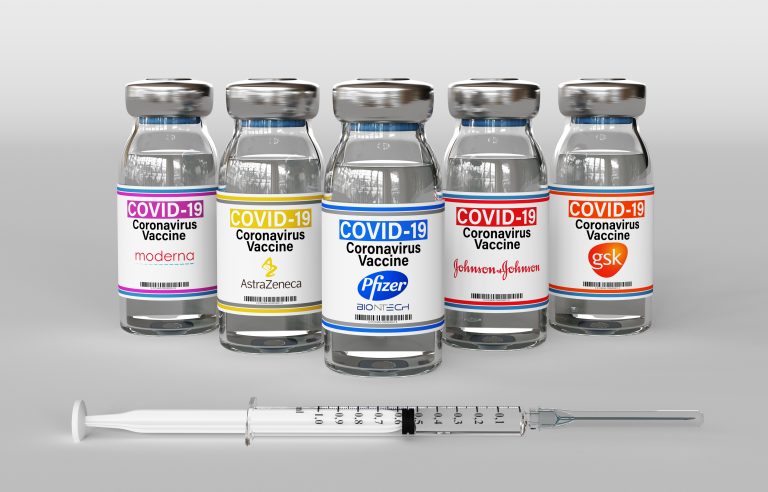RIO DE JANEIRO, BRAZIL – “Is it Pfizer? Better yet,” says the man in line at the Bom Retiro Basic Health Unit (UBS) in central São Paulo. “Yes, you see… I think we can trust Americans more than the others,” he adds. If Caio Silveira, 34 years old, is not the rule, neither is he the exception in the race for the vaccine against Covid-19.

The distrust that leads to a preference for the North American pharmaceutical company’s vaccine in relation to the Coronavac and Oxford/AstraZeneca’s often stems from access to conflicting information about unwanted reactions and protection levels against this or that variant of the virus. In others, the reason is more practical: some people want to be ready to travel when the pandemic passes and fear the implementation of a “vaccine passport.”
For now, immunization with Coronavac does not guarantee access to the European Union. But in some cases, only mass vaccination should clear borders. Since January 26, passengers who have been in the UK, Ireland and 26 European countries, as well as South Africa and Brazil (because of variants), are banned from entering the U.S.
Earlier this month, the World Health Organization (WHO) authorized the emergency use of Coronavac, the most common Covid-19 vaccine in Brazil. The authorization was an important step for the European Union, which is currently discussing easing its borders, to start allowing entry to people immunized with it. Yet, for those administered the vaccine produced by the Butantan Institute, accessing European territory is not an easy task. The trip is conditioned to the presentation of a PCR test performed up to 72 hours before boarding and a 14-day quarantine in the destination country, with isolation and contact tracing.
This is one of the concerns of 49-year-old trader Kika Kim, one place ahead of Caio in line. “I don’t have anything planned for now, but it’s better to take it right away so I can travel if I need to,” she says.
For Caio, international travel is still a distant reality. The administrator’s concern is not to have adverse reactions and to be able to rely on what he believes to be the better protection of Pfizer’s vaccine. He suffers from asthma and left Tatuapé, in the East Zone, after hearing that he could get the first shot of this vaccine there. Medical certificate in hand, he looks for his brother, who also suffers from asthma. Other than that, the fear of being infected with a strain for which the AstraZeneca vaccine is less effective than the others is also a weighty factor.
About 2 km away, at the UBS Santa Cecília, also in central São Paulo, retired civil policewoman Rosimeire Ferreira, 49, went after the leftover vaccine. Her preference? “The one from Pfizer,” she says. “We hear it’s better than Coronavac, so that’s the one. The AstraZeneca one seems to have many adverse effects.”
Five places behind her in line, student Maurício Kalife, 19, is even more determined. Luckily for him, on Tuesday the American pharmaceutical company’s vaccine was the one being offered. Were it not the case, he would look for another health center. “I trust the Europeans and Americans more,” he says.
Criticism
This should not be the case, explains Mirian Dalben, infectologist at the Sírio-Libanês Hospital. All vaccines available in the country today are effective and safe. “It is very difficult to compare the overall efficacy of vaccines,” she says. “The Pfizer trial was conducted before most variants emerged, mid-last year, and the Coronavac’s was later.” Launched after phase 3 trials, all of them are still undergoing follow-up to measure efficacy in larger populations over time, the so-called phase 4. “It may be that after a while, in the future, you can say that one is better than the other for a certain population,” says the infectious disease specialist. “Now, the main thing is to take any of the three and not put it off. You can’t be a vaccine sommelier.”
The São Paulo City Hall states that all vaccines available in Brazil were approved by the Brazilian Health Regulatory Agency (ANVISA) and have proven efficacy. The portfolio advises that “no choice should be made about a vaccine, nor should vaccination be delayed because of this.” In a note, the municipal administration states that “the Municipality has sufficient vaccine doses against Covid-19 to immunize the eligible public and, at this time, availability comprises vaccines from Pfizer for the first dose, Oxford/AstraZeneca’s for the first and second dose, and Coronavac, exclusively for the first dose of pregnant and postpartum women and for the second dose of eligible groups.”

